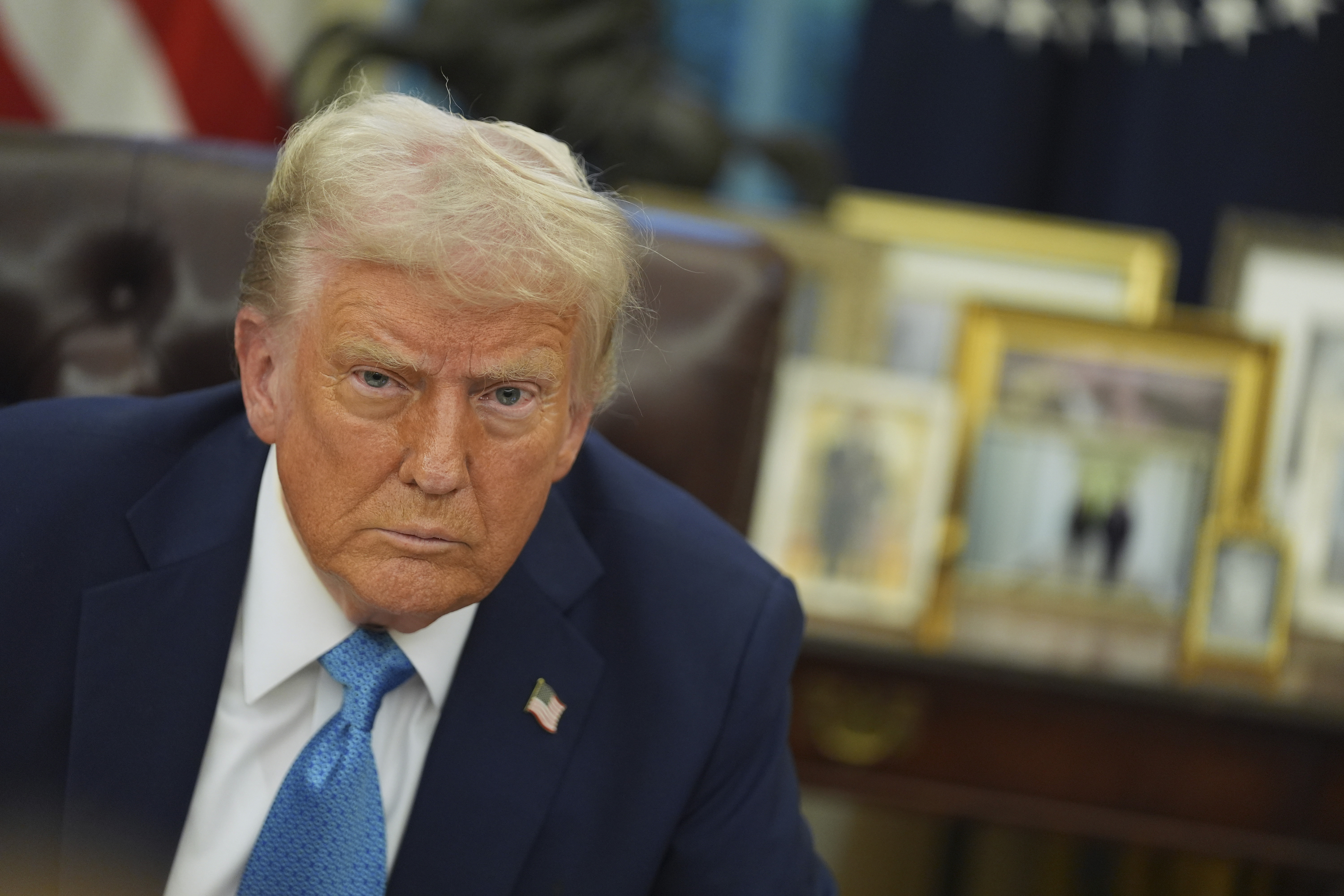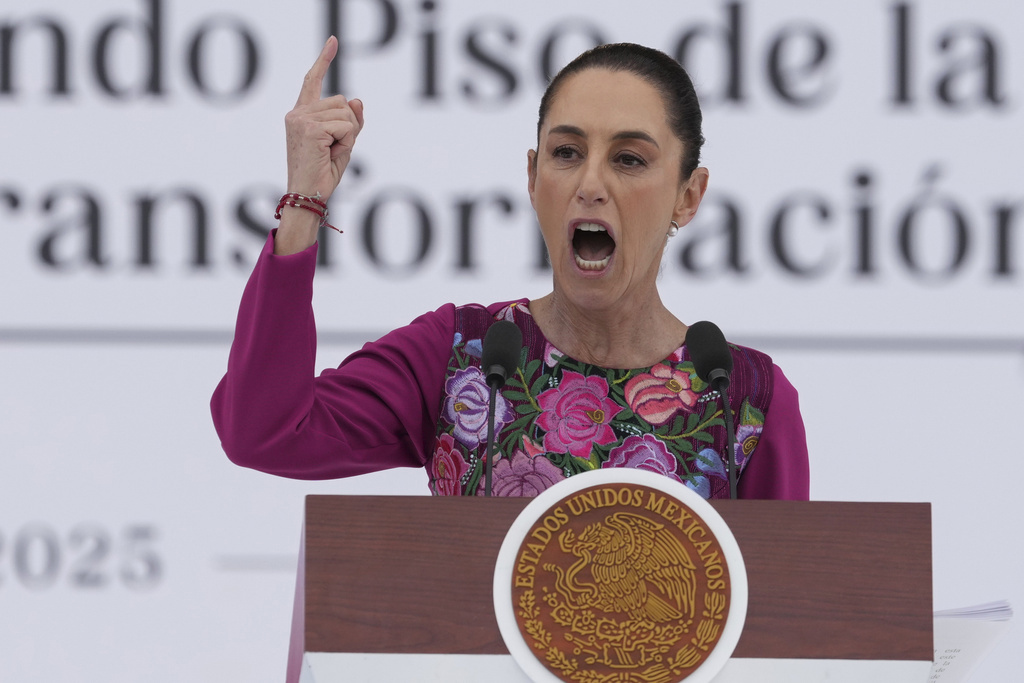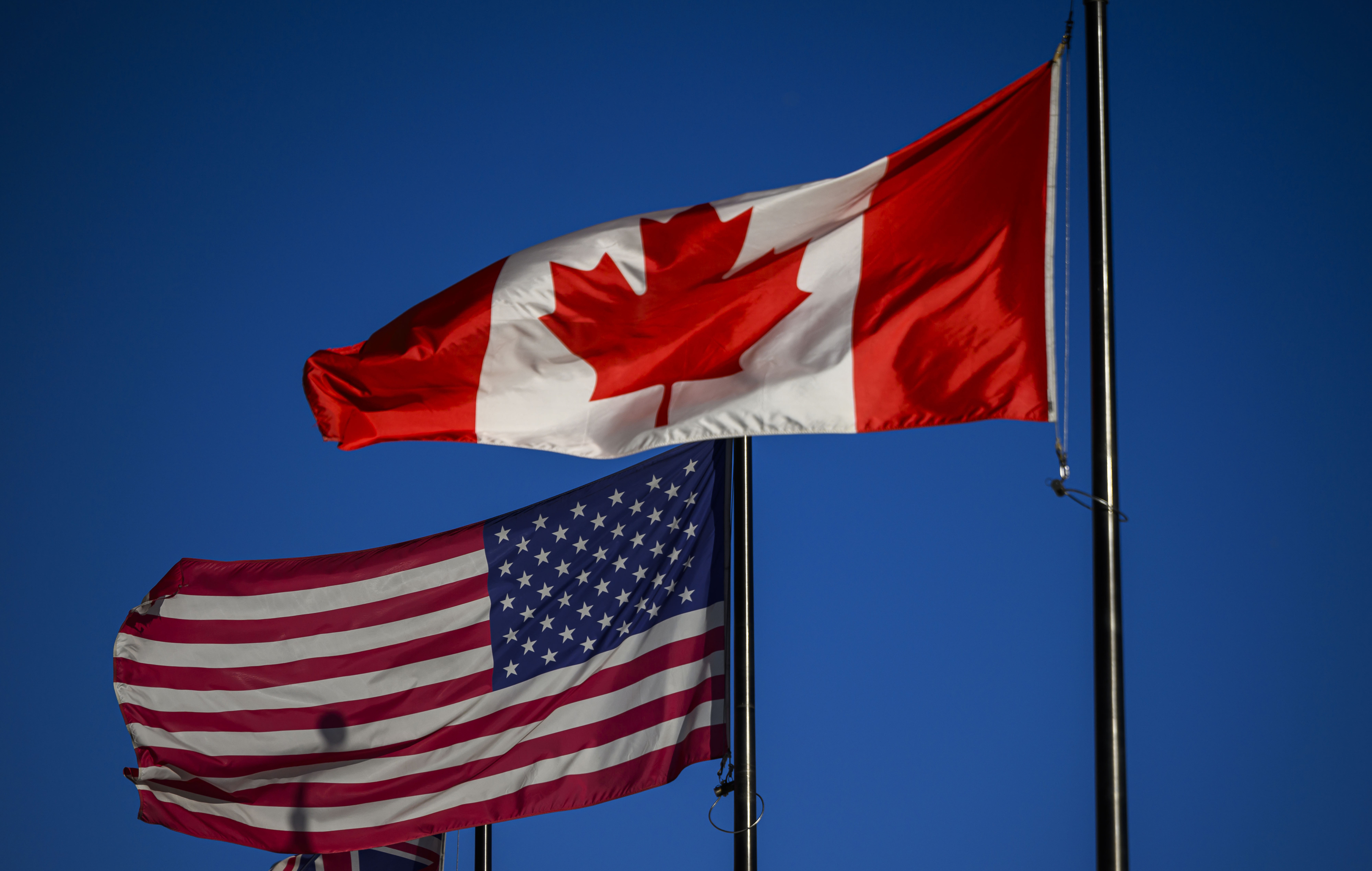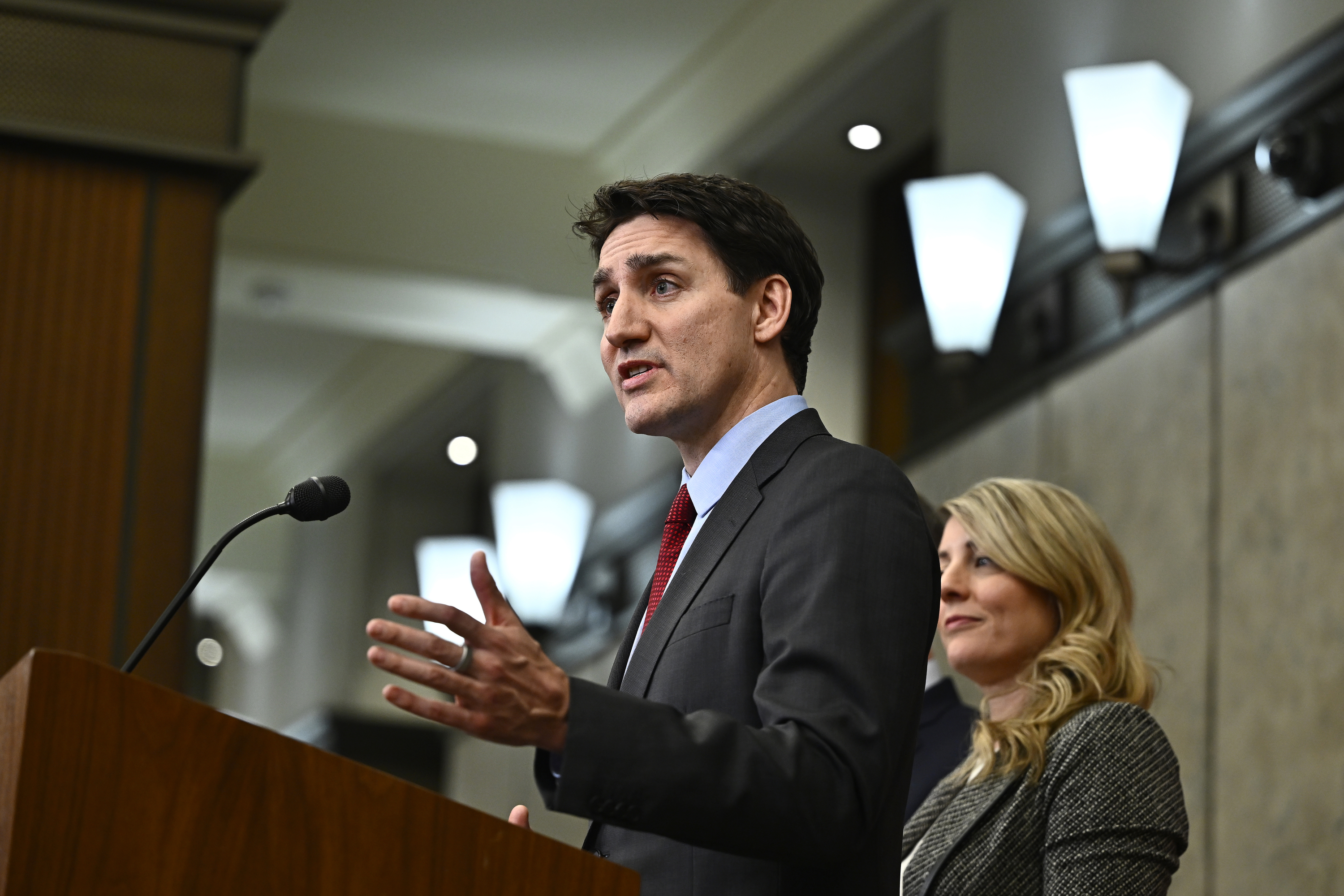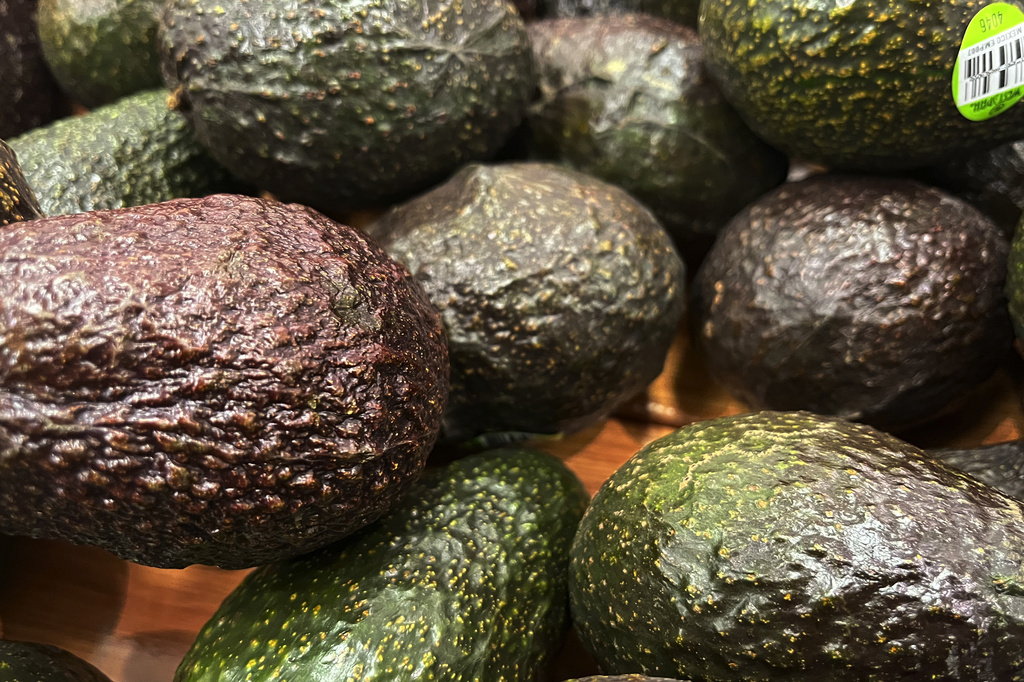US President Donald Trump has signed an order to impose stiff tariffs on imports from Mexico, Canada and China, drawing swift retaliation from the country's North American neighbours in an emerging trade war.
The Republican president posted on social media that the tariffs were necessary "to protect Americans", pressing the three nations to do more to curb the manufacture and export of illicit fentanyl and for Canada and Mexico to reduce illegal immigration into the US.
The action fulfilled one of Trump's commitments to voters but threw the global economy and Trump's own political mandate to lower prices into turmoil.
READ MORE: Woman killed in Queensland flood emergency
The tariffs, if sustained, could cause inflation to significantly worsen, possibly eroding voters' trust that Trump could as promised lower the prices of groceries, fuel, housing, cars and other goods.
Trump declared an economic emergency in order to place duties of 10 per cent on all imports from China and 25 per cent on imports from Mexico and Canada.
But energy imported from Canada, including oil, natural gas and electricity, would be taxed at a 10 per cent rate.
The action provoked an economic standoff with America's two largest trading partners in Mexico and Canada, upending a decades-old trade relationship with the possibility of harsh reprisals by those two nations.
Mexico's president immediately ordered retaliatory tariffs and Canada's prime minister said the country would put matching 25 per cent tariffs on up to $US155 billion in US imports.
"We categorically reject the White House's slander that the Mexican government has alliances with criminal organisations, as well as any intention of meddling in our territory," Mexican President Claudia Sheinbaum wrote in a post on X while saying she had instructed her economy secretary to implement a response that includes retaliatory tariffs and other measures in defense of Mexico's interests.
"If the United States government and its agencies wanted to address the serious fentanyl consumption in their country, they could fight the sale of drugs on the streets of their major cities, which they don't do and the laundering of money that this illegal activity generates that has done so much harm to its population."
China's Ministry of Foreign Affairs said the country's government "firmly deplores and opposes this move and will take necessary countermeasures to defend its legitimate rights and interests".
China began regulating fentanyl-related drugs as a class of controlled substances in 2019 and conducted "counternarcotics cooperation with the US," the ministry said, calling on the US government to correct what it considers wrongful actions.
The Ministry of Commerce in China said it would file a lawsuit with the World Trade Organisation for the "wrongful practices of the US" and take measures to safeguard its rights and interests.Trump's order includes a mechanism to escalate the rates charged by the US against retaliation by the other countries, raising the spectre of an even more severe economic disruption.
Canadian Prime Minister Justin Trudeau said that Canadian duties on $US30 billion in trade in American alcohol and fruit will take effect on Tuesday, when the US tariffs go into effect.
He opened his address to Canadians with a message aimed at American consumers.
"It will have real consequences for you, the American people," he said, saying it would result in higher prices on groceries and other goods.
Trudeau channelled the views of many Canadians who were feeling betrayed by their neighbour and longtime ally, reminding Americans that Canadian troops fought alongside them in Afghanistan and helped them respond to myriad crises from wildfires in California to Hurricane Katrina.
"The actions taken today by the White House split us apart instead of bringing us together," Trudeau said, warning in French that it could bring about "dark times" for many people.
He encouraged Canadians to "choose Canadian products and services rather than American ones".
The premier of Canadian province British Columbia, David Eby, called on residents to stop buying liquor from US "red" states and said it was removing American alcohol brands from government store shelves as a response to the tariffs.
In a televised message, Eby deemed the Trump's administration decision as "a declaration of economic war against a trusted ally and friend" and that he will stand up for his citizens and all Canadians in general.
"Effective today, I have directed BC liquor sales to immediately stop buying American liquor from red states," he said.
"Liquor store employees will be removing the most popular of these brands from government store shelves."
The tariffs will go into effect on Tuesday, setting a showdown in North America that could potentially sabotage economic growth.
A new analysis by the Budget Lab at Yale laid out the possible damage to the US economy, saying the average US household would lose the equivalent of $US1170 in income from the taxes.
Economic growth would slow and inflation would worsen — and the situation could be even worse if the countries retaliate.
A senior US administration official, insisting on anonymity to brief reporters, said the lower rate on energy reflected a desire to minimise any disruptive increases on the price of gasoline or utilities.
That's a sign White House officials understand the gamble they're taking on inflation.
Price spikes under former President Joe Biden led to voter frustration that helped to return Trump to the White House last year.
The order signed by Trump contained no mechanism for granting exceptions, the official said, a possible blow to homebuilders who rely on Canadian lumber as well as farmers, automakers and other industries.
The Trump administration put the tariffs in place to force the three countries to stop the spread and manufacturing of fentanyl, in addition to pressuring Canada and Mexico to limit any illegal immigration into the United States.
The official did not provide specific benchmarks that could be met to lift the new tariffs, saying only that the best measure would be fewer Americans dying from fentanyl addiction.
The order would also allow for tariffs on Canadian imports of less than $US800.
Imports below that sum are currently able to cross into the United States without customs and duties.
"It doesn't make much economic sense,'' said William Reinsch, senior adviser at the Centre for Strategic and International Studies and a former US trade official.
"Historically, most of our tariffs on raw materials have been low because we want to get cheaper materials so our manufacturers will be competitive … Now, what's he talking about? He's talking about tariffs on raw materials. I don't get the economics of it.''
The Republican president is making a major political bet that his actions will not significantly worsen inflation, cause financial aftershocks that could destabilise the worldwide economy or provoke a voter backlash.
AP VoteCast, an extensive survey of the electorate in last year's election, found that the U.S. was split on support for tariffs.
With the tariffs, Trump is honoring promises that are at the core of his economic and national security philosophy.
But the announcement showed his seriousness around the issue as some Trump allies had played down the threat of higher import taxes as mere negotiating tactics.
The president is preparing more import taxes in a sign that tariffs will be an ongoing part of his second term.
On Friday, he mentioned imported computer chips, steel, oil and natural gas, as well as against copper, pharmaceutical drugs and imports from the European Union — moves that could essentially pit the US against much of the global economy.
It is unclear how the tariffs could affect the business investments that Trump said would happen because of his plans to cut corporate tax rates and remove regulations.
Tariffs tend to raise prices for consumers and businesses by making it more expensive to bring in foreign goods.
Many voters turned to Trump in the November election on the belief that he could better handle the inflation that spiked under Biden.
But inflation expectations are creeping upward in the University of Michigan's index of consumer sentiment as respondents expect prices to rise by 3.3 per cent.
That would be higher than the actual 2.9 per cent annual inflation rate in December's consumer price index.
Trudeau said Canada is addressing Trump's calls on border security by implementing a $CDN1.3 billion ($US900 million) border plan that includes helicopters, new canine teams and imaging tools.
Trump still has to get a budget, tax cuts and an increase to the government's legal borrowing authority through Congress.
The outcome of his tariff plans could strengthen his hand or weaken it.
Democrats were quick to say that any inflation going forward was the result of Trump, who is about to start his third week back as president.
"You're worried about grocery prices. Don's raising prices with his tariffs," Senate Democratic Leader Chuck Schumer of New York posted on X.
"You're worried about tomato prices. Wait till Trump's Mexico tariffs raise your tomato prices. … You're worried about car prices. Wait till Trump's Canada tariffs raise your car prices," he wrote in a series of posts.


